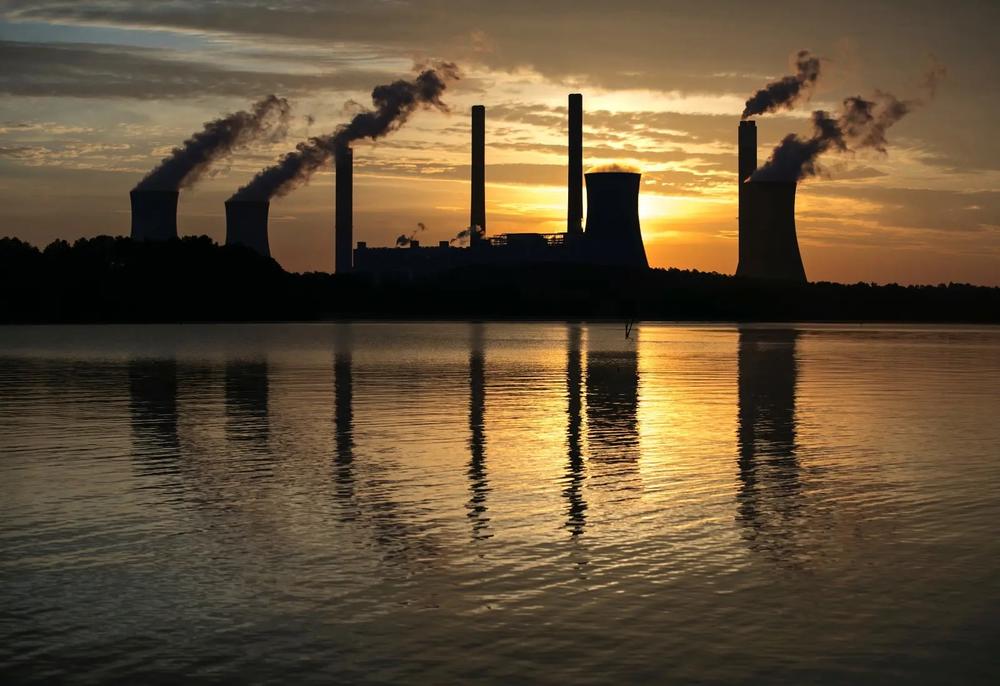
Section Branding
Header Content
What is a liquid? Utilities sue to avoid coal ash cleanup — and lose
Primary Content

Gautama Mehta, Grist
Across America, millions of tons of toxic waste are sitting in pits next to coal plants. But whether they will get cleaned up has come down to a legal debate over the definitions of words.
In 2015, following a pair of disastrous spills at coal plants in North Carolina and Tennessee, the Environmental Protection Agency issued a rule that required power companies to dispose of toxic waste at coal plants safely. The EPA’s rule required that coal ash, a byproduct of the coal power process which contains heavy metals like arsenic and mercury, cannot be left in contact with a “free liquid” — one that could move in and out of the ash itself — and it had to be stored in a manner that prevented “infiltration” by a liquid.
A group of utility companies sued the EPA and argued that rule’s prohibition of “infiltration” of a coal ash impoundment refers only to infiltration from above, by rainwater. They also claimed that the rule didn’t classify groundwater as a “free liquid” — although they acknowledged in their opening brief that “it may be true in a simplistic sense that ‘groundwater’ is a ‘liquid.’” By enforcing the rule using the common-sense definitions of these terms, the utilities argued, the EPA was effectively changing the rule itself.
To Gavin Kearney, an attorney at Earthjustice who argued in the case as an intervenor on the side of EPA, these arguments were “preposterous.” “These words are clear in their meaning. A liquid is a liquid, in any sense of the word, and infiltration means water coming in from any sides,” Kearney told Grist.
On June 28, the DC Circuit Court of Appeals agreed with him, finding no daylight between the letter of the 2015 rule and the EPA’s recent enforcement actions. The judge who authored the decision, Cornelia Pillard, specifically rejected the arguments about the contested meanings of “infiltration” and “free liquids.”
Prior to 2015, the pollution of groundwater by coal ash was long underappreciated among the many and varied hazards that coal plants pose to human health and the natural environment. Following the landmark rule, if a power company wanted to shut down a coal plant, which many companies are doing because of their decreasing profitability, it would have to ensure that no coal ash is left in contact with surrounding groundwater or open to rain from above.
However, in the years immediately following the rule’s passage, under the Trump administration — a period during which the EPA was briefly run by a coal lobbyist — the agency didn’t really enforce the rule. Power companies across the country quietly made plans to retire coal plants and in many cases simply ignored the rule banning permanent storage of coal ash in contact with groundwater. Under President Biden, the agency began enforcing the coal ash rule. There are over 100 sites nationwide where utilities plan to permanently bury coal ash where it was either in direct contact with groundwater or at imminent risk of contaminating it.
This story was originally published by Grist. Sign up for Grist’s weekly newsletter here.

